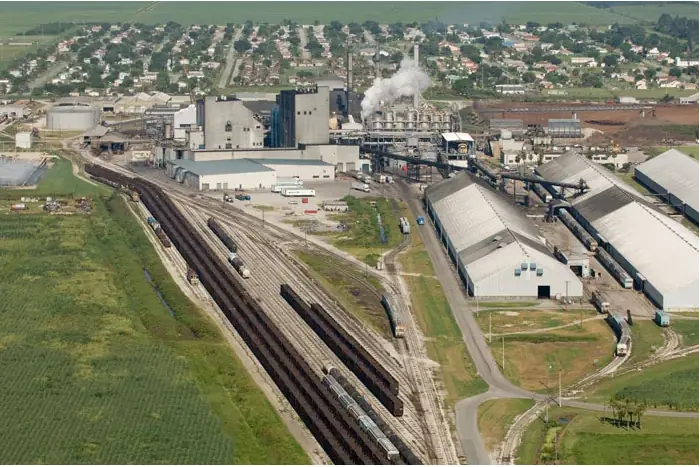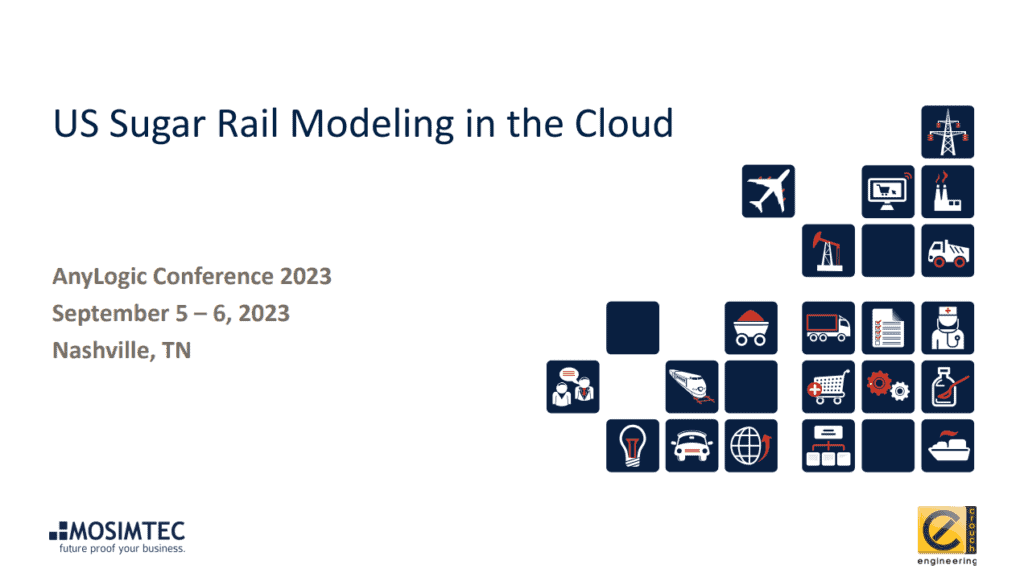The rail industry has recently seen unprecedented growth in crude by rail which has increased congestion on rail networks across North America. In this case, our client needed to understand what the limitations were in adding another 150,000 barrels per day by rail to an already congested network.
With this analysis, MOSIMTEC was able to help the client better understand the delivery times for their shipments. We also helped them better contract out their services to potential shippers.
Simulate Dynamic Rail Network Variables
For the client to fully understand unit train deliveries on the North American rail network, we had to look at all potential delivery points including both the west and east coasts for export as well as refinery destinations throughout the continent.
The model integrates with private and public information sources on rail systems including existing traffic and infrastructure across multiple rail companies.
Areas included in the model were:
- Terminal locations
- Siding capacity and locations
- Single and double track configurations
- Bottlenecks and queuing times
- Rail loading and unloading times for the unit train design
In the model, we have represented unit trains by a single dot on the map. Each color represents a different customer with the specific train symbol indicating either a full or an empty condition. The visual representation of the model allows the decision maker to visualize their operation, how the unit trains will arrive, and where they may be stored while awaiting processing.
Visualize Dynamic Rail Network Behaviors
The model executes dynamic behavior that is defined for each of these components, including capacity delays, congestion, reliability, schedules and more.
Unit trains arrive at various locations across the network and time is allowed for either loading or unloading of vessels. Each train is assigned a range of processing and delay times that are typical in the industry for these locations and activities.
Get Answers to Rail Network Optimization Questions
This rail simulation is valuable from a visual analytics perspective but of greatest value is the data it gathers with a very high level of confidence. The model is constantly collecting data in real-time for all of these components. This simulation model can be used for running the rail network under various scenarios, to answer questions like:
- How many additional unit trains may be expected when adding another customer contract into your existing transload facility?
- How does the increase in unit train traffic from a new customer impact terminal congestion?
- What are the customer route options, associated switching yard times and other bottlenecks?
- Can the current queue lengths and wait time for rail loading and unloading be improved by changing operating policies at both the origination and destination?
- What is the estimated profit and loss under various scenarios?
At MOSIMTEC, we are in the business of leveraging modern advancements in modelling and simulation science and technology to solve complex issues for clients across various industries.
Our core focus is assisting clients to make better decisions through the application of decision support tools. Our team has extensive experience working with leading computer simulation software and solving complex issues for clients across various industries.
Contact us to learn more about simulation modeling to optimize your rail network operations.
Other Case Studies
- All
- ALConference23
- Anylogic
- AnyLogic Conference 2023
- Financial Models
- Financial Risk Modeling
- Logistics
- Manufacturing
- Monte Carlo
- Monte Carlo Simulation
- Mortgage default modeling
- Rail
- Rail Model
- Railway
- Risk Management
- Simulation
- Software
- US Sugar


